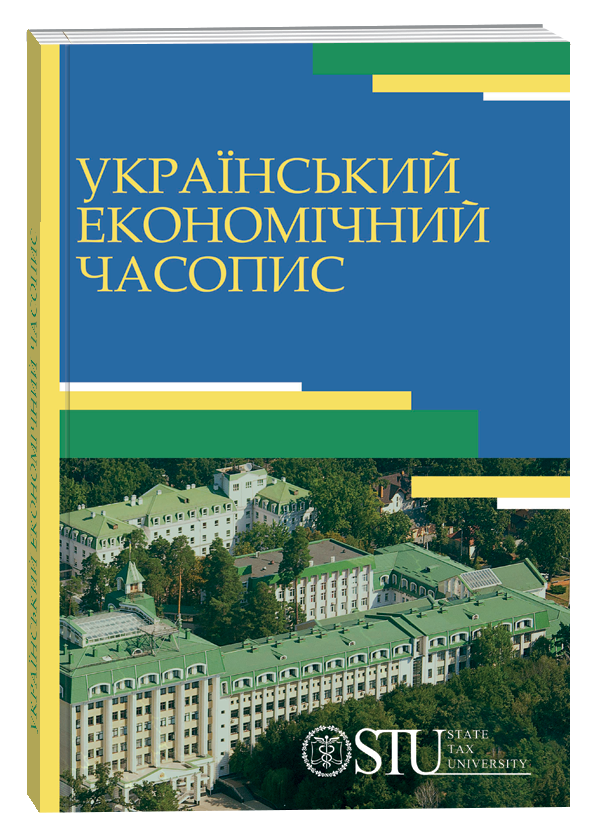METHODS FOR EVALUATING THE COST-EFFECTIVENESS OF MARKETING RESEARCH IN AGRIBUSINESS: ACCOUNTING AND ANALYTICAL APPROACHES
DOI:
https://doi.org/10.32782/2786-8273/2024-7-6Keywords:
agribusiness, marketing cost-effectiveness, accounting model, marketing research expenses, digital marketing in agricultureAbstract
The dynamic and competitive present conditions in agribusiness markets necessitate effective management of marketing research expenses to maximize profitability and sustain competitive advantage. Given the vital role of marketing insights in strategic decision-making, the efficient allocation and control of marketing research costs have become essential for agribusiness enterprises. This study addresses the current limitations in accounting practices for assessing the effectiveness of marketing research investments in agribusiness. The lack of a structured approach for monitoring, analyzing, and optimizing these expenditures hinders agricultural enterprises' ability to make financially grounded decisions regarding marketing activities and resource allocation. The primary purpose of this research is to develop a methods framework for assessing the cost-effectiveness of marketing research expenditures within the agribusiness sector, using a combination of accounting and analytical approaches. By establishing clear criteria for evaluating marketing expenses, this study aims to enhance the decision-making process in agribusiness enterprises, enabling them to identify and focus on the most productive marketing channels and activities. The research employs a multi-faceted methodology that integrates economic analysis and accounting modeling. The methods of analogy, synthesis, and comparative analysis were applied to evaluate existing practices and design an improved accounting model that accommodates the unique operational requirements of the agricultural sector. The study presents a set of practical guidelines and key performance indicators (KPIs) for evaluating marketing expenses, emphasizing the importance of accounting for the specificities of digital and traditional marketing channels used in agribusiness. The proposed classification includes traditional marketing costs and new digital marketing expenditures, such as search engine advertising, social media marketing, and collaborations with influencers on agricultural platforms. By understanding marketing expenses, the study provides an actionable framework that supports agribusinesses in tracking their marketing investments and improving the return on their marketing budgets. The findings of this research underscore the need for a specialized approach to marketing cost management within agribusiness. The proposed accounting and analytical framework enables agricultural enterprises to optimize their marketing expenditure, align their investments with strategic goals, and strengthen their competitive positioning in the market. The recommendations offered in this study support the development of robust accounting practices that can be integrated into agribusiness management systems, promoting sustainable growth and resource efficiency. Future studies could expand upon this work by exploring the integration of real-time analytics and AI-driven insights for enhanced cost management and decision-making in agricultural marketing activities.
References
The State of Data-Driven Marketing in 2021: Why You Need to Update Your Strategy. URL: https://goo.su/Hw6
Журило В., Дербеньова Я. Застосування цифрових інструментів Data-Driven маркетингу в електронній комерції. Publishing House “Baltija Publishing”, 2021. С. 131–135.
Назарова К., Мисюк В. Облік витрат на маркетингові комунікації підприємства. Вісник Київського національного торговельно-економічного університету. 2017. №5. С. 129–140.
Voitenko O., Zhygalkevych Zh.M. Маркетингові дослідження виведення нового товару на ринок сільськогосподарської продукції. Journal of Strategic Economic Research. 2023. № 6. С. 143–157.
Боняр С., Пилипенко О., Валявська Н. Проблеми інтерпретації результатів маркетингових досліджень споживчих ринків. Економіка і управління. 2023. С. 14–29.
Фісун Ю., Борисенко О., Ярмолюк О. Інноваційні підходи проведення маркетингових досліджень сучасних підприємств. Держава та регіони. Серія: Економіка та підприємництво. 2022. № 2(125). С. 99–103.
Нестеренко В., Сідельнікова В. Аналіз маркетингової діяльності підприємства: актуальні аспекти оцінювання ефективності. Проблеми і перспективи розвитку підприємництва. 2021. № 1 (26). С. 89–97.
Бондаренко В., Омельяненко О. Дослідження та оцінка використання інтернет-технологій в маркетинговій діяльності підприємств аграрного сектору. Економіка та суспільство. 2023. № 57. DOI: https://doi.org/10.32782/2524-0072/2023-57-24
Грицишин А. Облік збутової діяльності в умовах розмежування логістичних і маркетингових процесів. Вісник економіки. 2020. № 1. С. 200–212.
Пономаренко О., Пивавар І., Лісна І. Оцінка маркетингового потенціалу підприємства та обґрунтування заходів з його підвищення. Бізнес Інформ. 2021. № 1. C. 334–345.
The State of Data-Driven Marketing in 2021: Why You Need to Update Your Strategy. Available at: https://goo.su/Hw6 (accessed October 28, 2024).
Zhurilo V., Derbenieva Ya. (2021) Zastosuvannia tsyfrovyh instrumentiv Data-Driven marketynhu v elektronnii komertsii [Application of digital tools of data-driven marketing in e-commerce]. Publishing House “Baltija Publishing”. pp. 131–135.
Nazarova K., Mysiuk V. (2017) Oblik vytrat na marketynhovi komunikatsii pidpryiemstva [Accounting of marketing communication costs of the enterprise]. Visnyk Kyivskoho natsionalnoho torhovelno-ekonomichnoho universytetu – Bulletin of Kyiv National University of Trade and Economics, vol. 5, pp. 129–140.
Voitenko O., Zhygalkevych Zh. M. (2023) Marketynhovi doslidzhennia vyvedennia novoho tovaru na rynok silskohospodarskoi produktsii [Marketing research of launching a new product on the agricultural market]. Journal of Strategic Economic Research, vol. 6, pp. 143–157.
Bonyar S., Pylypenko O., Valiavska N. (2023) Problemy interpretatsii rezultativ marketynhovykh doslidzhen spozhyvchykh rynkiv [Issues of interpreting marketing research results in consumer markets]. Ekonomika i upravlinnia – Economics and Management, pp. 14–29.
Fisun Yu., Borysenko O., Yarmolyuk O. (2022) Innovatsiini pidkhody provedennia marketynhovykh doslidzhen suchasnykh pidpryiemstv [Innovative approaches to conducting marketing research in modern enterprises]. Derzhava ta rehiony. Seriia: Ekonomika ta pidpryiemnytstvo – State and Regions. Series: Economics and Entrepreneurship, no. 2(125), pp. 99–103.
Nesterenko V., Sidelnikova V. (2021) Analiz marketynhovoi diialnosti pidpryiemstva: aktualni aspekty otsiniuvannia efektyvnosti [Analysis of enterprise marketing activities: current aspects of effectiveness evaluation]. Problemy i perspektyvy rozvytku pidpryiemnytstva – Problems and Prospects of Entrepreneurship Development, no. 1(26), pp. 89–97.
Bondarenko V., Omelianenko O. (2023) Doslidzhennia ta otsinka vykorystannia internet-tekhnolohii v marketynhovii diialnosti pidpryiemstv ahrarnoho sektoru [Research and evaluation of internet technologies usage in marketing activities of agribusiness sector enterprises]. Ekonomika ta suspilstvo – Economy and Society, vol. 57. DOI: https://doi.org/10.32782/2524-0072/2023-57-24
Hrytsyshyn A. (2020) Oblik zbutovoi diialnosti v umovakh rozmezhuvannia lohistychnykh i marketynhovykh protsesiv [Accounting of sales activity in the context of logistics and marketing processes division]. Visnyk ekonomiky – Economic Bulletin, vol. 1, pp. 200–212.
Ponomarenko O., Pyvavar I., Lisna I. (2021) Otsinka marketynhovoho potentsialu pidpryiemstva ta obhruntuvannia zakhodiv z yoho pidvyshchennia [Assessment of the marketing potential of an enterprise and justification of measures for its improvement]. Biznes Inform – Business Inform, no. 1, pp. 334–345.



